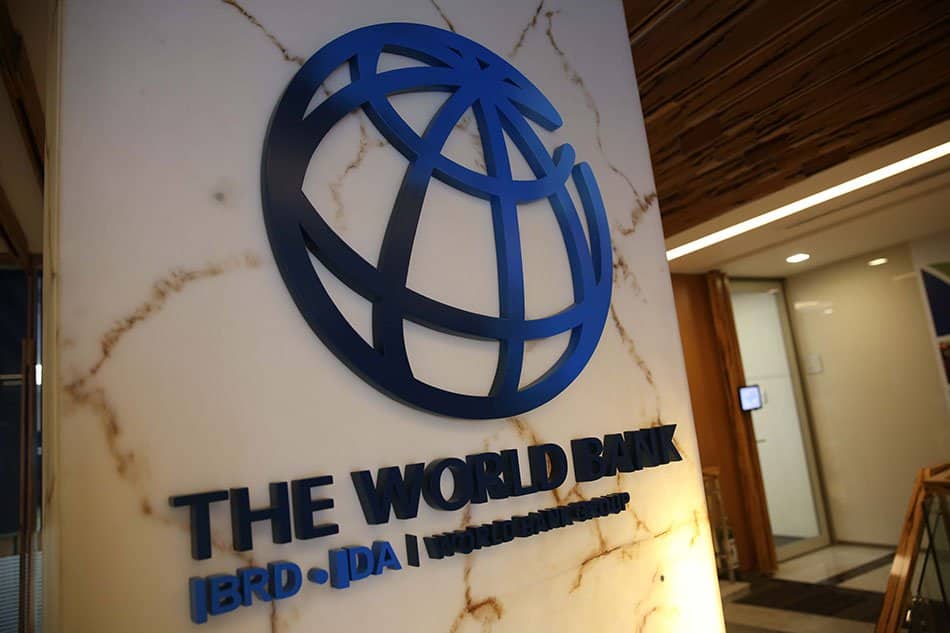Foreign exchange crises, high inflation, and fiscal pressures generated by fuel subsidies, according to the World Bank, distort the benefits of a growing non-oil sector and high oil prices.
This was disclosed by the World Bank in a document titled ‘Nigeria Development Update (June 2022): The Continuing Urgency of Business Unusual.’
The World Bank stated that the weakening of Nigeria’s macroeconomic framework is mainly due to the absence of concerted efforts to reduce inflation, address fiscal pressures, and strengthen exchange rate management.
The World Bank stated that higher oil prices stemming from the Ukraine war will boost Nigeria’s economic growth, though less than anticipated.
READ ALSO: More Nigerians ’ll fall into extreme poverty, World Bank predicts
The Bank said, “As in other oil-producing economies, higher oil prices usually improve Nigeria’s fiscal and external position, boosting exports and public spending. In addition, through income spillover effects, they also aid the non-oil economy, particularly manufacturing and services. However, in contrast to previous episodes of high oil prices, Nigeria is not expected to harness the windfall fully this time.
“This is because the effect of higher oil prices is offset by lower oil output, which as of May 2022 stood at 1.5 million barrels per day (bpd), the lowest in 15 years. Fiscal gains are offset by the continuing petrol subsidy.”
The World Bank stated that Nigeria is in a paradoxical situation where growth prospects have improved, but the overall macroeconomic framework is deteriorating.
The Bank said, “Our revised estimates for inflation, the fiscal deficit, and public debt indicate a more vulnerable macroeconomic position in 2021 and the first half of 2022, which is further compounded by the increasing premium between the official and the parallel (black market) exchange rates.”
READ ALSO: Expert tougher months ahead, World Bank warns Nigerians
The Bank added, “The weakening of Nigeria’s macroeconomic framework is mainly due to the absence of concerted efforts to reduce inflation, address fiscal pressures, and strengthen exchange rate management. As a result, inflation is expected to be two percentage points higher in 2022–2023 than in our baseline scenario from six months ago.”
Nigeria’s inflation rose to its highest level in 11 months, rising from 16.82% recorded in April 2022 to 17.71%.
The closely watched Food inflation rose by 19.5% year-on-year in May 2022, representing a 1.13% points uptick compared to 18.37% recorded in the previous month and 2.78% decline compared to the corresponding period of 2021 (22.28%).
Nigeria’s foreign trade rose to N13 trillion in the first quarter of 2022, increasing by 11.1% from the N11.7 trillion recorded in the previous quarter and 65.4% higher than the N7.86 trillion recorded in Q1 2021. This is according to the recently released foreign trade report for Q1 2022, by the National Bureau of Statistics (NBS).
Total imports in Q1 2022 totalled N5.9 trillion, down 0.67% from Q4 2021 (N5.94 trillion), but up 21.04% from the comparable period in 2021. (N4.88 trillion).
Nigeria’s export income in the first quarter of 2022 was N7.1 trillion, up 23.1% and 137.9% from N5.77 trillion and N2.98 trillion in the first and fourth quarters of 2021, respectively.
The exchange rate at the parallel market is trading at N607/$1 while trading at N420.5/$1 at the Investors and Exporters (I&E) window at the time of writing.

 Football1 week ago
Football1 week ago
 Health & Fitness2 days ago
Health & Fitness2 days ago
 Comments and Issues1 week ago
Comments and Issues1 week ago
 Featured6 days ago
Featured6 days ago
 Education7 days ago
Education7 days ago
 Business7 days ago
Business7 days ago
 Business6 days ago
Business6 days ago
 Crime7 days ago
Crime7 days ago

